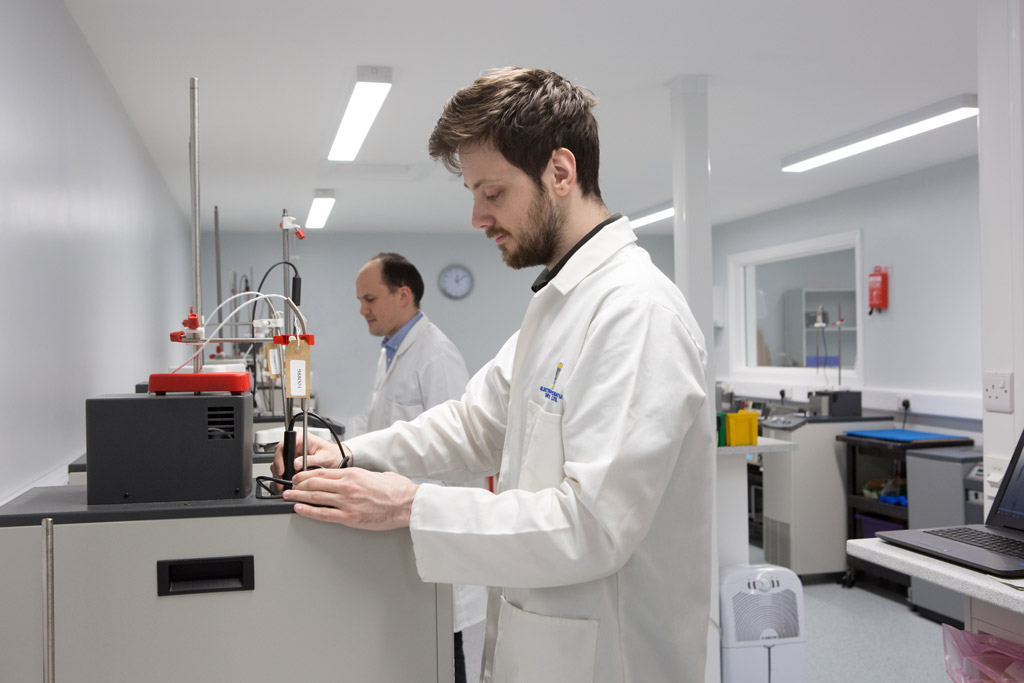ETI Department Spotlight: Quality Assurance

At the ETI factories in Worthing, West Sussex, we are equipped with a state-of-the-art UKAS laboratory and service/repair centre. We spoke to our Quality Manager, Andy Reid, about what accreditations we hold at ETI, what this means for our UKAS laboratory and how this affects the quality of our in-house services.
What accreditations does ETI hold?
We currently hold ISO 9001:2015 Quality Management System accredited by BSI and ISO 17025:2017 Temperature and Humidity accredited by UKAS.
Whilst we are not accredited to any HSE ISO standards specifically, we have a Nebosh qualified Health and Safety officer and experience safety team actively encouraging safe practices, This team is also responsible for monitoring our Environmental impact and obligations under WEE and Waste Battery regulations.
How do these accreditations add value to the company?
Let’s start with ISO 9001 QMS. This is a quality system designed to monitor and improve all areas of your business. An effective QMS which we have helps us to focus on the key risk areas of the business and improve efficiency to obtain a consistent outcome. Maintaining an ISO 9001 system gives customers confidence to buy from us, as well as from our key suppliers.
UKAS ISO 17025 accreditation is the single most important standard for calibration and testing laboratories around the world. Being an ISO 17025 accredited laboratory demonstrates that we are technically proficient and able to produce precise and accurate test and calibration data. This goes hand in hand with R&D when developing and producing a new product as it enables us to gain accurate and consistent production level calibrations on every single thermometer produced by ETI.
How much work is involved maintaining a UKAS accredited laboratory?
This is a continual exercise. Critical equipment is routinely checked in house using international standards such as gallium, triple of water and other fixed cells to ensure its reliability, with equipment of greater importance checked more frequently. There is also necessary auditing and training exercises to ensure adherence to the laboratory standard (17025:2017). Part of being an accredited laboratory is having clear documentation showing that this maintenance takes place and how it is then put into action.

What improvements have been made to the laboratory over the last few years?
One of the biggest changes we made was investing in more temperature baths. This has allowed us to better manage the quantity of work we are now receiving, as well as granting us more flexibility when carrying out work at points that differ from our usual standard five.
Another aspect we worked on is being able to deliver a better uncertainty of measurement with our lower range of temperature (down to -80°C), as we now have more space to work. Simply we were able to invest in better equipment to carry out the work we were already doing.
By having more equipment and space, is ETI looking to be a superior calibration centre for temperature measurement?
The work we do in the UKAS laboratory is always attempting to carry the same philosophy and mentality as Managing Director Peter Webb does with ETI as a whole. One principle Peter has emphasised consistently is the importance of providing customers with the “wow factor”. This means not just offering a good calibration service, but ensuring that from start to finish every aspect is carried out in a way that will impress customers. This includes good turnaround times, low uncertainties and a fair price for the work being carried out. Being a manufacturer also gives us the unique advantage of being able to carry out any repairs should the customer need them as well.

Learn more about our calibration services.
Learn more about our UKAS laboratory.
Shop our calibration equipment.